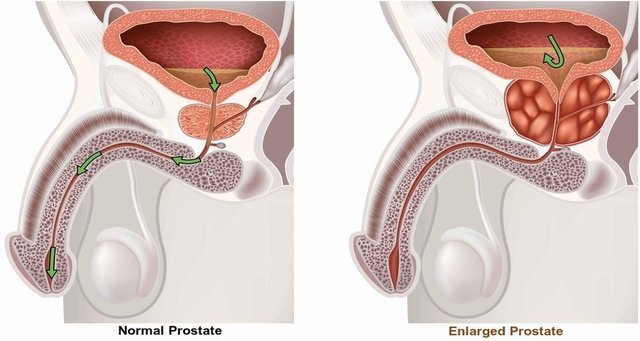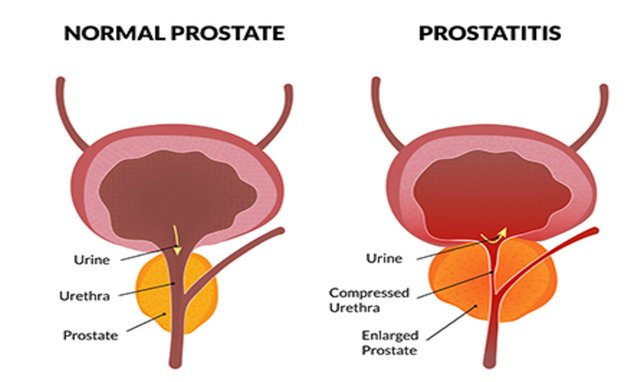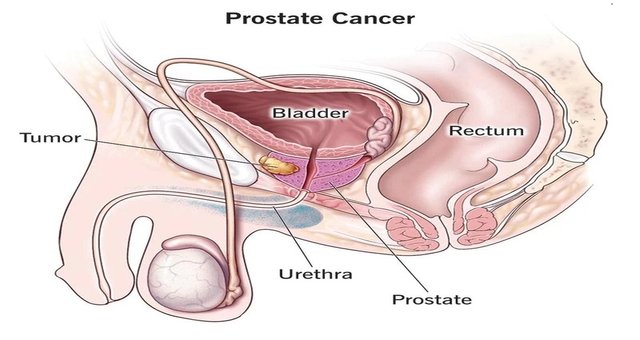Prostate Problems and Solutions: Taking Control of Men's Health
When it comes to men's health, one concern that often arises is prostate problems. The prostate is a small gland located below the bladder and in front of the rectum, and it plays a vital role in male reproductive health. As men age, the prostate may undergo various changes that can lead to bothersome symptoms and potential health risks.

However, by understanding the common prostate problems and implementing appropriate solutions, men can take proactive steps towards maintaining their well-being. In this article, we will explore the different prostate problems men may encounter and discuss potential solutions.
Benign Prostatic Hyperplasia (BPH):
.jpg)
Benign Prostatic Hyperplasia, commonly known as BPH, is a non-cancerous enlargement of the prostate gland that typically occurs with age. As the prostate grows, it can compress the urethra, causing urinary symptoms such as frequent urination, weak urine flow, and a persistent urge to urinate. Lifestyle modifications like limiting fluid intake before bed, avoiding caffeine and alcohol, and practicing double voiding (urinating twice during one trip to the bathroom) can help manage mild BPH symptoms. Medications and surgical interventions are available for more severe cases.
Prostatitis:

Prostatitis refers to the inflammation of the prostate gland, which can cause discomfort, pain in the pelvic area, and urinary symptoms. It can be classified into four types: acute bacterial prostatitis, chronic bacterial prostatitis, chronic prostatitis/chronic pelvic pain syndrome (CP/CPPS), and asymptomatic inflammatory prostatitis. Treatment for prostatitis depends on the underlying cause and may include antibiotics, anti-inflammatory medications, sitz baths, and lifestyle changes. Seeking medical advice is crucial to determine the appropriate treatment approach. Get Prostatitis supplement here
Prostate Cancer:

Prostate cancer is a serious health concern for men. It is the most common cancer among males but is highly treatable when detected early. Regular screenings, including prostate-specific antigen (PSA) blood tests and digital rectal exams (DRE), are important for early detection. Treatment options for prostate cancer vary based on the stage and aggressiveness of the cancer, and may include surgery, radiation therapy, hormone therapy, chemotherapy, and immunotherapy. Discussing the available treatment options with healthcare professionals can help determine the best course of action.
Prevention and Lifestyle Recommendations:

While some prostate problems are inevitable due to aging, certain lifestyle choices can help reduce the risk and promote prostate health. Here are some recommendations:
(a) Maintain a balanced diet:

Incorporate a variety of fruits, vegetables, whole grains, and lean proteins into your diet. Limit the consumption of red meat and high-fat dairy products.
Stay physically active:

Regular exercise, such as brisk walking, jogging, or swimming, can help maintain overall health, including prostate health.
(c) Don't ignore urinary symptoms:

Address any changes in urinary habits promptly. Consult a healthcare professional if you experience frequent urination, weak flow, or pain during urination.
(d)Avoid smoking and excessive alcohol consumption:

Smoking and heavy drinking have been linked to an increased risk of prostate problems, including cancer. Quit smoking and consume alcohol in moderation, if at all.
(e)Maintain a healthy weight:

Obesity has been associated with an increased risk of prostate cancer. Strive to maintain a healthy weight through a balanced diet and regular exercise.
Conclusion of Prostate Problems and Solutions:
Prostate problems can significantly impact a man's quality of life, but with early detection, proper medical care, and lifestyle modifications, men can take control of their prostate health. Regular check-ups, adopting healthy habits, and seeking medical advice for any concerning symptoms are essential steps towards maintaining a healthy prostate. By prioritizing their well-being, men can improve their overall health and lead fulfilling lives well into their golden years.
|
|
Source